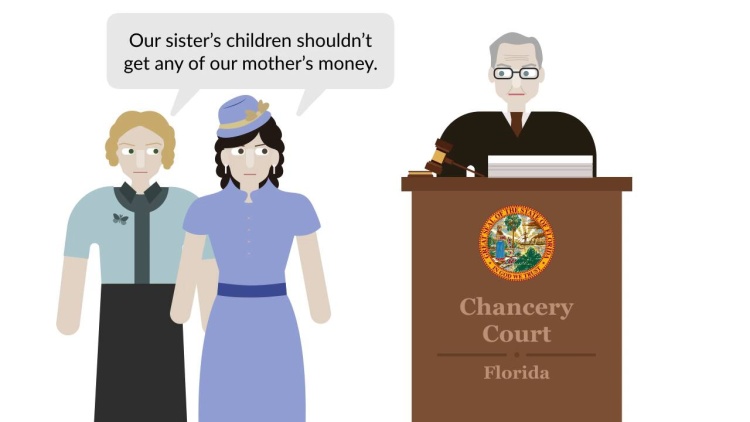Hanson v. Denckla
United States Supreme Court
357 U.S. 235, 78 S. Ct. 1228 (1958)
- Written by Matt Fyock, JD
Facts
Dora Donner, a Pennsylvania resident, established a trust in Delaware with a Delaware bank as trustee. Subsequently Donner moved to Florida, where she died and where her will was then probated. One of Donner’s three daughters, Hanson (defendant), was executrix of Donner's will and the primary recipient of the Delaware trust. Donner's other daughters, Denckla (plaintiff) and Stewart, split the majority of the estate when the will was probated in Florida. Denckla wished the Florida court to exercise jurisdiction over the Delaware trust and trustee, in which case Hanson would have no share of the estate. The Florida court assumed jurisdiction over the Delaware trust and enjoined the Delaware trust from paying. The Florida Supreme Court upheld the decision that Florida law applied to determine the validity of the Delaware trust. Meanwhile, Hanson had filed a separate suit in Delaware. The Delaware court ruled, among other things, that the trust was valid under Delaware law. The Delaware Supreme Court affirmed, holding that the Florida judgment was not entitled to full faith and credit because Florida lacked jurisdiction over the trust res and had no personal jurisdiction over the Delaware trustee. The United States Supreme Court granted certiorari.
Rule of Law
Issue
Holding and Reasoning (Warren, C.J.)
Dissent (Black, J.)
What to do next…
Here's why 899,000 law students have relied on our case briefs:
- Written by law professors and practitioners, not other law students. 47,000 briefs, keyed to 994 casebooks. Top-notch customer support.
- The right amount of information, includes the facts, issues, rule of law, holding and reasoning, and any concurrences and dissents.
- Access in your classes, works on your mobile and tablet. Massive library of related video lessons and high quality multiple-choice questions.
- Easy to use, uniform format for every case brief. Written in plain English, not in legalese. Our briefs summarize and simplify; they don’t just repeat the court’s language.





